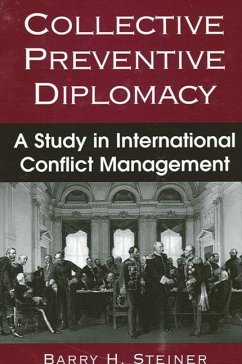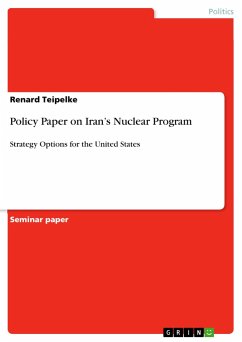Powerful nations have often assumed a leadership role in international relations by becoming involved in ethnic conflict arising within small states. Recently however, their willingness to do so, at least unilaterally, has diminished. This study focuses on how and why powerful nations have acted together to dampen or forestall the expansion of small state conflicts while limiting potential risks to themselves. Employing a case-study method, Barry H. Steiner distinguishes between two types of collective preventive diplomacy, the insulations and the interventionist. In the former, powerful nations are motivated to contain small power conflict in order to preserve their relations with other powerful nations. In the latter, they act to settle conflict between the small power antagonists themselves.
Bitte wählen Sie Ihr Anliegen aus.
Rechnungen
Retourenschein anfordern
Bestellstatus
Storno








